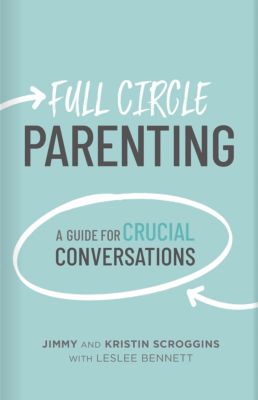
By John Beeson
Are you encouraged or discouraged about teens? If you’re a teen, what is your perception of your peers? Are you hopeful or pessimistic? A global study on the state of teens was just released from One Hope. In their report focused on U.S. teens, we find reasons to be encouraged and causes for concern.
Spending time reflecting on what teens believe and do ought to help shape the way we pray for them and relate to them. I’ll process five sections of the report: Christian practice, struggles, social media, sexuality, and the meaning of life in teens’ lives and then draw some conclusions.
On Christian Practice
- 51% of U.S. teens claimed to be Christian, yet only 8% display the beliefs and habits of a committed Christian.
- 46% of Christian teens never read the Bible.
- 58% of Christian teens believe they don’t have a responsibility to share their faith.
I appreciate that One Hope didn’t merely use a Christians vs. non-Christians binary; they dug into beliefs and practices. Much more important than whether one identifies as a Christian or not are one’s beliefs and practices. One Hope defined a committed Christian as one who:
- Believes God exists and they can have a personal relationship with Him
- Believes Jesus is the Son of God
- Believes forgiveness of sins is only possible through faith in Jesus Christ
- Believes the Bible is the Word of God
- Prays at least weekly
- Reads Scripture on their own at least weekly
These are pretty strong criteria. Personally, I would have included weekly church attendance and a higher standard of praying and reading the Bible. Particularly as Lifeway Research found 66% of those who regularly attended church previously drop out of church between the ages of 18 and 22. Still, only 8% of teens qualified as committed Christians even by these fairly loose restrictions.
51% of US teens claimed to be Christian, yet only 8% display the beliefs and habits of a committed Christian, according to a One Hope study. Click To TweetAs parents, one of the most important things we can do is to have regular family devotion times that include prayer and reading the Bible. We are setting up our teens for failure if we put the responsibility on them to have quiet times on their own. While I would certainly want to encourage my teens to have their own quiet times, I think that creating familial rhythms is much more sustainable than putting the pressure on them to carve out healthy spiritual practices on their own.
On Struggles
- 60% of teens and 30% of committed Christian teens struggle with depression.
- 35% of teens and 12% of committed Christian teens struggle with suicidal thoughts.
- 50% of teens and 36% of churchgoing Christian teens struggle with pornography.
- 48% of 13–15-year-olds have viewed porn in the past three months.
- 51% of 18–19-year-olds have viewed porn in the past three months.
- Self-identified Christian teens are more likely than non-Christian teens to be sexually active.
This should sober us. Many older people critique teens and young adults as entitled or lazy without first empathizing with them. It is staggering that 60% of teens struggle with depression and jaw-dropping that 35% of teens struggle with suicidal thoughts. There are a lot of ways the world is easier today than it was 50 years ago, but mental health is not one of them. Take a look at how these challenges are hitting young teens. Younger teens (13- to 15-year-olds) struggle the most with suicidal thoughts.
60% of teenagers struggle with depression, and 35% say they have suicidal thoughts Click To TweetNote also that porn usage is basically flat among teens. If parents believe they don’t need to be leaning into heavy-duty conversations about sexuality and suicide until their teens have their driving permit, they’ve waited far too long. Kids are exposed to porn and are struggling with mental health at startling young ages.
There is no small encouragement here that rates of depression and suicidal thoughts are more than half for committed Christians. When we ground ourselves in the truth of the gospel and root ourselves in the Word and prayer, there is a real impact on mental health.
The world looks at pastors and biblical counselors and shakes their collective head at our naivete in encouraging those struggling with depression to read the Bible, pray, and gather in worship and community. A good pastor and biblical counselor doesn’t deny there may be a physiological component to mental health that may require medication, but insists there is always a spiritual dimension to mental health.
Despite being more likely to view sex outside of marriage as wrong, self-identified Christian teens are more likely than non-Christian teens to be sexually active, according to a One Hope study. Click To TweetFinally, it is important to note that while our teens are battling pornography better than the world, their sexual activity in relationships is no better (it’s slightly worse!). We ought to be reminded that merely knowing something is wrong does little to change our behavior. How can we speak to our teens’ hearts better in this matter and shape their affections?
On Social Media
- Teens in the U.S. spend an average of around 7.5 hours online daily.
- 65% of teens say social media improves their life satisfaction.
- Depression rates for heavy internet users (10+ hours daily) are 20% higher than light internet users (below four hours daily).
- Suicidal thoughts are 28% higher for heavy internet users than for light internet users.
It’s startling to me that 65% of teens say social media improves their life satisfaction when study after study tells us of the significant negative mental health impact of social media. Adults need to recognize that those adverse impacts are even worse for teens and model healthy behavior. In addition, we need to be more proactive in creating healthy boundaries for our teens.
Depression rates among heavy internet using teens (10+ hours daily) are 20% higher than light internet using teens (below 4 hours daily), according to a One Hope study. Click To TweetOn Sexuality
- 30% of teens believe marriage should be exclusively between a man and a woman.
- 36% of Christian teens believe marriage should be exclusively between a man and a woman.
It isn’t surprising that so few teens believe in a traditional understanding of marriage, but it is a bit sobering that so few Christians have a conventional view of marriage. We should never assume that our teens are absorbing a biblical worldview. We need to have proactive and biblically saturated conversations about worldviews with our kids from a young age.
We should never assume that our teens are absorbing a biblical worldview. We need to have proactive and biblically saturated conversations about worldviews with our kids from a young age. — @JohnMBeeson Click To TweetOn the Meaning of Life
- 45% of Christian teens say their family is the most important influence on the meaning of life.
- 8% of Christian teens say the Bible or pastors are the most important influence on the meaning of life.
It’s encouraging that Christian teens say their parents influence them more than their non-Christian peers. If you are a parent, your teen likely still listens to you more than they do their friends (even though they might not act like it). More discouraging is just how low our teens’ view of the Bible is. Very few view the Bible as the ultimate authority in their lives. It’s unsurprising, then, that they would read the Bible so infrequently.
What’s next?
More than anything, I hope you read these findings with sympathy and care for Generation Z. They are growing up in a confusing time with massive challenges. Technology has been a major factor affecting the lives of our young people, in negative and positive ways.
For those of us whose first exposure to porn was through magazines and not the internet and whose identity was shaped by face-to-face social interactions and not social media we ought to be less critical and more supportive of this generation. May we come alongside in prayer, in relationship, and in service that God might grab hold of many struggling hearts for His glory and their good.

John Beeson
John is the husband of Angel, the father of two teens, co-lead pastor at New Life Bible Fellowship in Tucson, Arizona, and blogger at The Bee Hive. He is the co-author of Blogging for God’s Glory in a Clickbait World. He and Angel have a forthcoming book, Substitute Identities.
Methodology:
The study surveyed 8,394 teens ages 13-19 across 20 countries. In each country, a representative sample of approximately 400 teens provided the statistical power to be 95% confident that percentage results were within 5% of the true population percentage for teens ages 13 to 19, and to perform corresponding statistical tests. In the U.S., 410 teens were surveyed. For multi-country regions and globally, the level of confidence was even higher and the margin of error lower.
In 5 countries (China, Egypt, India, Japan, and Vietnam), quotas were used to ensure at least 10% of respondents were Christian in order to have a meaningful sample size for religious-based analysis and comparisons. In several other countries, minimum 10% target sample sizes for Christians or Muslims were met or approximated without using quotas. A sampling quota was also used in Kenya to ensure at least 40% of respondents were female.
The instrument was distributed via Centiment Research. As a quality control measure, respondents were disqualified if they incorrectly answered a simple attention-check question. The research instrument consisted of 70 base questions, with several additional questions customized for each region to explore specific topics of interest.









